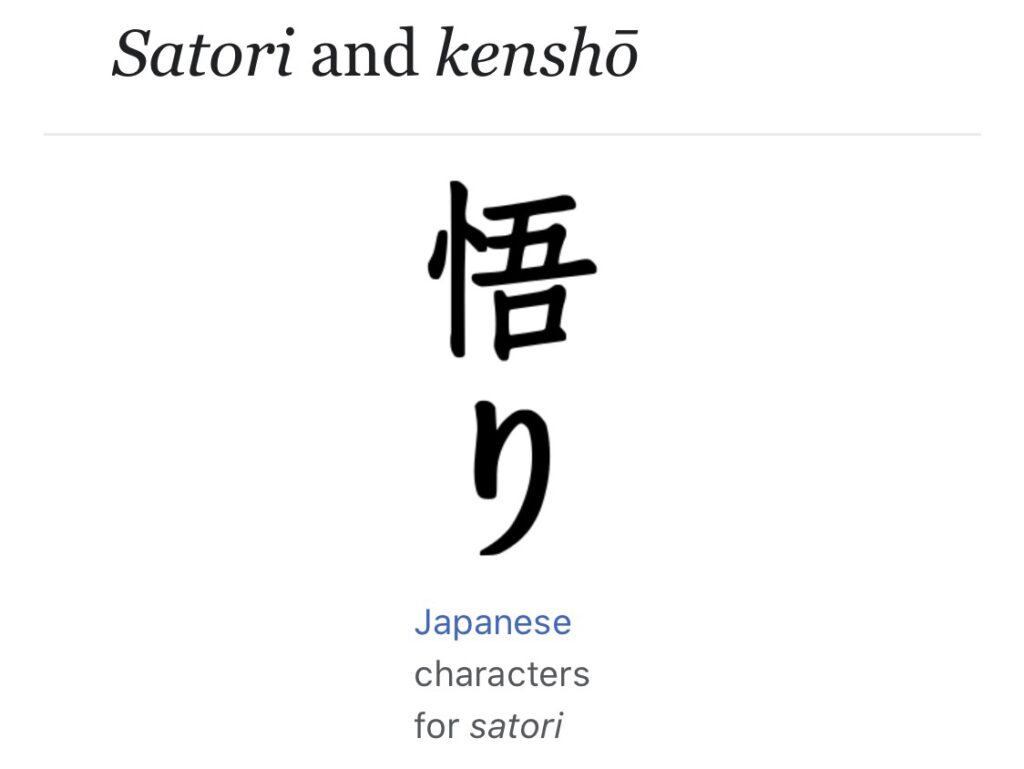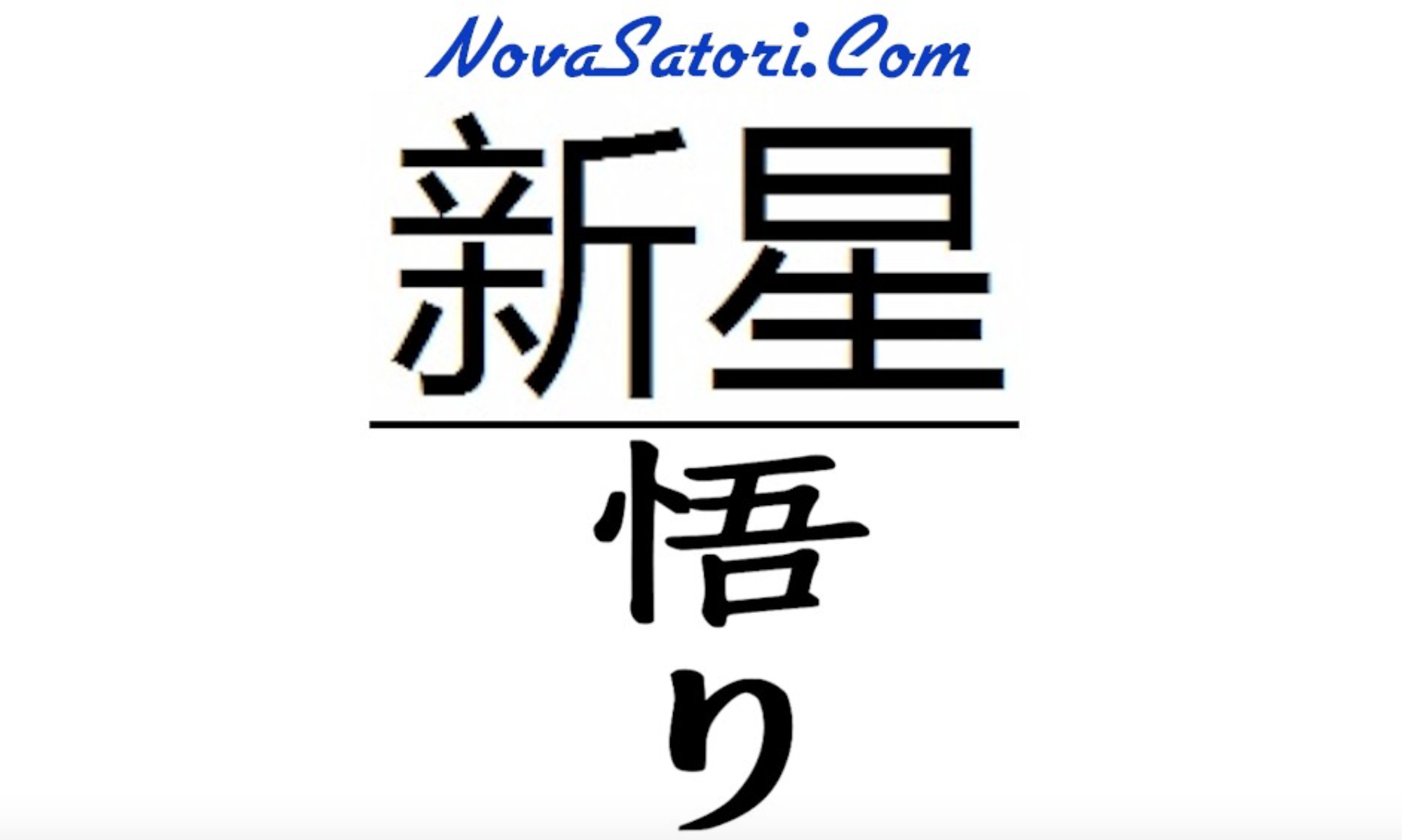Satori (悟り) is a Japanese Buddhist term for awakening, “comprehension; understanding”. It is derived from the Japanese verb satoru.
In the Zen Buddhist tradition, satori refers to the experience of kenshō, “seeing into one’s true nature”. Ken means “seeing,” shō means “nature” or “essence”.
Satori and kenshō are commonly translated as enlightenment, a word that is also used to translate bodhi, prajna and buddhahood.
Definition
D. T. Suzuki, a Japanese author of books and essays on Buddhism, Zen and Shin that were influential in the West, described “… looking into one’s nature or the opening of satori”;[4]and said “This acquiring of a new point of view in our dealings with life and the world is popularly called by Japanese Zen students ‘satori’ (wu in Chinese). It is really another name for Enlightenment (“Annuttara-samyak-sambodhi”)”.

Distinct from this first insight, daigo-tettei is used to refer to a “deep” or lasting realization of the nature of existence.
According to D. T. Suzuki,
Satori is the raison d’être of Zen, without which Zen is not Zen. Therefore every contrivance, disciplinary and doctrinal, is directed towards satori.
This view is typical of Rinzai, which emphasizes satori. The Sōtō school rejects this emphasis, and instead emphasizes “silent illumination” through the practice of zazen.
